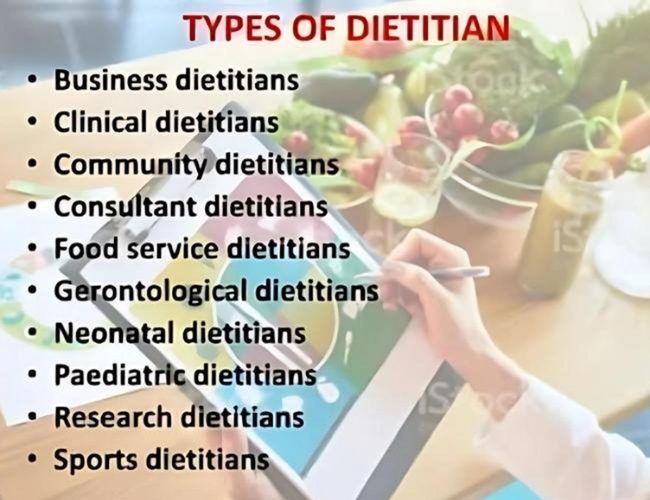How to become a Registered Dietitian in India?
A very rewarding career as a Registered Dietitian in India is because this profession involves passion for nutrition coupled with science and health. If you are passionate about helping people improve health through dietary modifications and overall lifestyle changes, then this is the right place! With this guide, you will know how to be a Registered Dietitian in India, what educational requirements and specialties are in a career, and some tips for success.
What is a Registered Dietitian?
A registered dietitian is a professional who specialized in nutrition and dietetics. He or she provides counseling and education in healthcare settings, community programs, and even private practice to prevent disease, promote health, and advise in dietary concerns.
Registered dietitians are substantial assets to hospitals and healthcare centers, community-based organizations, or personal practice, where they counsel clients on ideal nutrition and healthy living. Indeed, these experts can suggest tailored nutrition plans, analyze diets, and offer evidence-based opinions for patients.

Procedure
- For India Registered Dietitian Exam, candidates should complete their full-time graduation with post-graduation from a recognized university on the basis of UGC. Distance education is also acknowledged for post-graduation.
- Chief dietitians of the recognized hospitals will authenticate the documents of the applicant only after approval of internship.
- The Registered Dietitian application forms can be downloaded from the website from September to November.
How do you become a registered dietitian in India?
Qualifications
To sit in the Registered Dietitian exam, the candidate needs to fulfill the following conditions:
1.1: Life Member of IDA before internship.
1.2: Nutrition and Dietetics, Home Science or related field with any specific subjects as decided by the council of IDA including Basic Nutrition, Clinical Nutrition and Therapeutic Nutrition.
1.3: Qualify post-graduate diploma or Master’s course in Nutrition or Dietetics.
1.4: Six months internship from a hospital recognized by the Council of IDA-India website. OR
1.5: Five years of clinical experience as a dietitian in an institution recognized by the government of India in any multispecialty hospital, depending upon availability, with a recommendation letter if not IDA-listed.
This will ensure that professionals in nutrition and dietetics have the necessary competence to be able to support public health competently in all regions of India.
Specializations for Registered Dietitians

RDs can specialize in various fields, engaging them in their areas of interest. Here are some common specializations:
- Clinical Dietitian: The dietitians can be employed by hospitals and other health care facilities to develop diet plans for the patients. At times, they collaborate with physicians and other medical practitioners in ensuring that a patient receives appropriate nutrition for the best outcome when undergoing any type of procedure in the hospitals.
Community Dietitian: They focus on public health. There, they educate communities on what eating healthy means. They might host workshops, design community programs, and engage in outreach activities to create nutritional awareness.
Sports Dietitian: These professionals work with athletes to ensure peak performance and recovery through customized food plans. Sports dietitians collaborate with coaches and other sports teams to guarantee that all their nutrition requirements are fulfilled.
Pediatric Dietitian: This area of expertise focuses on children to ensure that they attain their nutritional needs for proper growth and development. Pediatric dietitians may also focus on particular concerns such as obesity, allergies, or digestive issues.
Gerontology Dietitian: Catering to the gerontology segment, such dietitians work on the specific nutritional needs of older adults and assist in promoting and maintaining health and well-being over the years of aging process.
Renal Dietitian: A dietitian who deals with renal conditions and supports patients suffering from kidney disease or those on dialysis or transplantation to manage restrictions by coming up with the best alternatives for nutrition.
Such specializations through communities enable RDs to impact more people within a community.

Tips to Succeed as a Registered Dietitian
As you graduate and become a registered dietitian, here are some tips that can help you succeed in your career:
- Master the Art of Communication: Teach the ability to express arduous messages in comprehensive and coherent words. Many times, what is built into the rapport between the dietitian and the client is effective communication, thus ensuring that the client understands their dietary needs.
Stay updated on current trends in the industry. Nutrition science is constantly shifting. Read on current research and continuing education. Subscribe to your specialized interest in journals and take professional developments.
Network: get connected with dietitians and other professionals in the health industry. This could possibly open you up to more opportunities through job leads and more collaborative work.
Technology Acceptance: Familiarize yourself with various nutrition-related software and tools. Today many RDs use apps and online platforms to track the progress of the clients and their dietary plans.

Cultural Competence: Understand and respect diversity in dietary practices and beliefs. One important part of an RD’s practice is working with culturally diverse clients, but this requires a level of cultural competence to really help clients.
Leadership Skills. Outreach in the community, classrooms, any environment you find yourself in be it a hospital, school or wellness program, all, or can lead to leadership
Feedback: Always ask for feedback from your peers, supervisors to continually improve your practice. Constructive criticisms are what help hone your skills for better services for your clients.
- Self-Care: This is one such area in which a dietitian may need to place themselves first, in terms of health and well-being. Good healthy eating habits and regular exercise contribute to health and resilience.
Conclusion
Becoming a Registered Dietitian is a challenging yet rewarding endeavor; in a country like India, the contribution can be immense by changing the lives of so many people. With education and experience coupled with continuous updating of knowledge, one can efficiently reduce the deprivation and suffering of others by using sound knowledge and ways to guide them to healthier lifestyles.
At Fitrofy, we believe that the students who want to be dietitians need knowledge and resource empowerment for a perfect career. Following this roadmap and constantly seeking opportunities for growth can make you a super successful Registered Dietitian in India contributing to a healthier nation. The journey may be arduous but the difference one makes in lives and communities cannot be accounted for in a balance sheet.
It will set you apart in this rewarding profession by continuing to invest in your education, staying enthusiastic about nutrition, and committing to the well-being of your clients. Enjoy the ride and make a difference in the world with your dietetics skills.
Prioritize health and well-being with an easy-to-use solution! The Smart Diet Planner supports daily wellness and energy. Discover the benefits of better health habits today.
Download now or reach out at dietitian@smartdietplanner.com |
+91-7037679715 | https://business.fitrofy.com/
